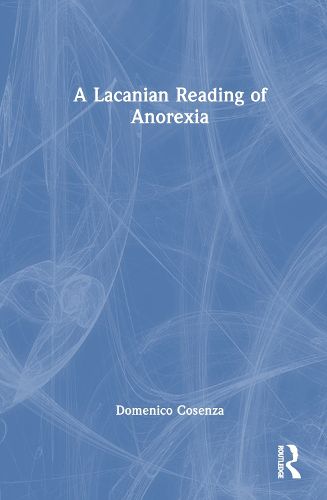Readings Newsletter
Become a Readings Member to make your shopping experience even easier.
Sign in or sign up for free!
You’re not far away from qualifying for FREE standard shipping within Australia
You’ve qualified for FREE standard shipping within Australia
The cart is loading…






This book presents a Lacanian perspective on the understanding and treatment of anorexia, supported by case material, research and theoretical insight from the author's 25 years of clinical practice.
Domenico Cosenza explains how anorexia constitutes a challenge for contemporary psychoanalytic clinicians, assesses previous theoretical understandings and examines clinical contributions from other schools of psychoanalysis. Cosenza argues that anorexia cannot be treated by following a classical psychoanalytic path, and here draws on numerous clinical cases to articulate a Lacanian approach which addresses core concerns not resolved elsewhere. Elaborating on Lacanian concepts including refusal and the object nothing, Cosenza offers a new approach for all psychoanalytically-informed clinicians working with anorexia.
A Lacanian Reading of Anorexia will be of great interest to psychoanalysts, psychiatrists, clinical psychologists and psychotherapists interested in Lacanian perspectives and the dynamic-analytical approach in the treatment of anorexia.
$9.00 standard shipping within Australia
FREE standard shipping within Australia for orders over $100.00
Express & International shipping calculated at checkout
This book presents a Lacanian perspective on the understanding and treatment of anorexia, supported by case material, research and theoretical insight from the author's 25 years of clinical practice.
Domenico Cosenza explains how anorexia constitutes a challenge for contemporary psychoanalytic clinicians, assesses previous theoretical understandings and examines clinical contributions from other schools of psychoanalysis. Cosenza argues that anorexia cannot be treated by following a classical psychoanalytic path, and here draws on numerous clinical cases to articulate a Lacanian approach which addresses core concerns not resolved elsewhere. Elaborating on Lacanian concepts including refusal and the object nothing, Cosenza offers a new approach for all psychoanalytically-informed clinicians working with anorexia.
A Lacanian Reading of Anorexia will be of great interest to psychoanalysts, psychiatrists, clinical psychologists and psychotherapists interested in Lacanian perspectives and the dynamic-analytical approach in the treatment of anorexia.